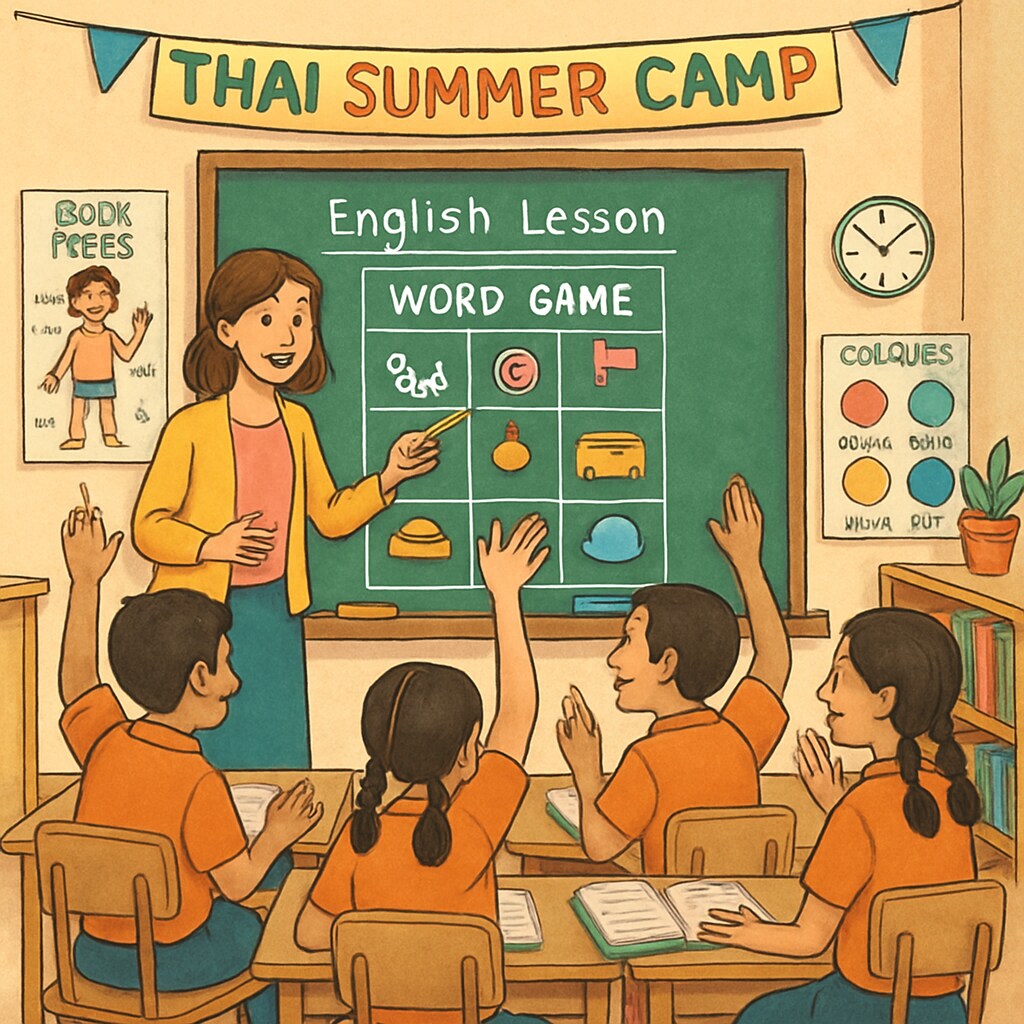Thailand’s English summer camps have emerged as a dynamic platform for educators seeking to expand their international teaching experience. These programs provide a unique blend of cultural immersion, professional development, and career-building opportunities. For teachers passionate about making a global impact, Thailand offers a vibrant and rewarding environment to achieve their goals.

Why Choose Thailand for English Summer Camps?
Thailand is renowned for its warm hospitality, stunning landscapes, and rich cultural heritage. But beyond tourism, the country has become a hotspot for educators looking to engage in meaningful teaching experiences. Summer camps in Thailand focus on English language skills, helping students improve their communication and comprehension through interactive activities.
For educators, the benefits are manifold:
- Cultural Exchange: Teachers can immerse themselves in Thai traditions, cuisine, and daily life, fostering a deeper understanding of global cultures.
- Professional Growth: The camps offer opportunities to develop innovative teaching strategies tailored to diverse student needs.
- Networking Opportunities: Educators can connect with colleagues from around the world, building relationships that may lead to future collaborations.
In addition, Thailand’s affordable cost of living makes it an attractive destination for educators seeking both adventure and career development.

The Challenges of Teaching in Thailand’s Summer Camps
While the experience is undoubtedly rewarding, teaching in Thailand’s English summer camps comes with its challenges. Understanding these hurdles can help educators prepare better:
- Language Barriers: While students are eager to learn, communication may be challenging initially due to varying English proficiency levels.
- Cultural Differences: Educators must adapt to Thai customs and classroom etiquette to create a harmonious learning environment.
- Resource Constraints: Unlike traditional schools, summer camps may have limited teaching materials, requiring educators to be resourceful.
However, these challenges often serve as opportunities for teachers to expand their adaptability and creativity, skills that can be invaluable in any teaching role.
Career Development Through Summer Camps
Teaching in Thailand’s English summer camps is more than just a short-term opportunity; it can be a stepping stone to long-term career growth. Many educators who start with summer camps find themselves pursuing permanent teaching roles in Thailand or other international locations. The experience gained through these camps can strengthen resumes and open doors to prestigious teaching positions worldwide.
Moreover, educators develop a global perspective, enhancing their ability to work with diverse student populations. This cultural competence is increasingly valued in education systems around the world.
As a result, summer camps in Thailand are not just about teaching English—they are about building a foundation for a fulfilling and impactful career.
Conclusion: The Golden Opportunity for Educators
Thailand’s English summer camps offer more than a chance to teach; they provide educators with a unique pathway to personal and professional enrichment. From cultural immersion to career advancement, these camps are a golden opportunity for those passionate about education and global impact.
If you’re an educator looking to broaden your horizons, Thailand’s vibrant summer camps might just be your next big adventure.
Further Reading: Learn more about Thailand’s culture and education system on reputable sites like Wikipedia’s Thailand page or explore global teaching opportunities on platforms like Britannica’s Education section.


